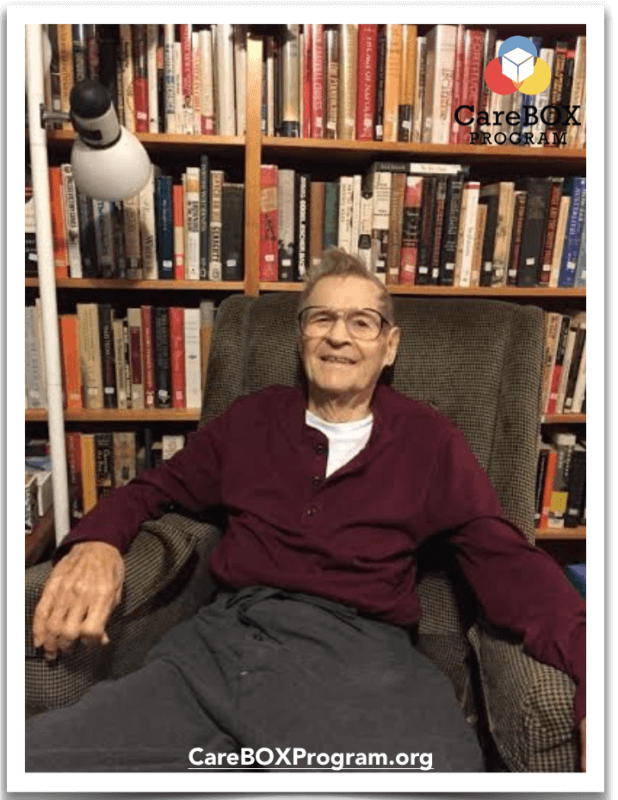
On Saturday I had the honor of delivering supplies to my first ColorCancer patient—93-year-old Wellington, whose supply list was fulfilled by some of my very best friends. I don’t know that I could have had a better first delivery experience. Upon walking into their house, the walls were masked by floor-to-ceiling bookshelves, spanning from politics to astrophysics to world history, travel trinkets and tapestries from the Middle East, and their TV showing BBC’s coverage of the Paris attacks. His wife, Dorothy, had bright blue eyes and was a former journalist and writer, once working for the sister of John Steinbeck’s second wife. Dorothy said she preferred BBC, as it’s not “bias” like other outlets. Wellington was an engineering professor, and together they lived all over the world, even though, as Dorothy said, “Professors never have money—but the work covers the travels.” His walls of books were the collections of all his years spent in academia, across all coordinates imaginable. They were still in love.
They told me stories of living in Taiwan and Thailand, Iraq and Lebanon, and eventually spent several years working as part of a physics program in Mexico. They loved living in the world, which they agreed is never as the media portrays—the locals being warm and friendly most places they went, including in the Middle East. They told me stories of their roadtrips through New England, once finding a “curmudgeon” with books for sale in a barn on the side of a two-lane. They stopped to take a gander and a grumpy old man said, “I’m not open.” And they said, “That’s OK,” and proceeded to help themselves to his collections. [He ended up making a pretty penny despite his attempt to ward the two off.]
Dorothy went on to share their experiences with poor veteran care in the United States, particularly in the country, telling the sad story of Wellington’s father dying alone in rural South Central Texas with little assistance or programs to help with his needs, despite being a well-respected WWII vet. That loneliness, they both agreed, was the saddest part of dying in America. They said the best part of the at-home delivery was the “conversation that came with it.”
I left their house with an overwhelming set of emotions, stemming from the synchronicity in meeting another scholarly grandad, the sadness of what’s happening overseas, and the harsh reality of the elderly being left to fend for themselves with little care no matter how good a life they led.
ColorCancer is an incredible program, and if you’d like to get involved, they’re always seeking CareDONORs and CareDRIVERs to help fulfill their supply and delivery needs. You can find out more at: careboxprogram.org. [Thank you again for introducing me to the program, Melissa.]
Ashley Halligan, CareDONOR and CareDRIVER